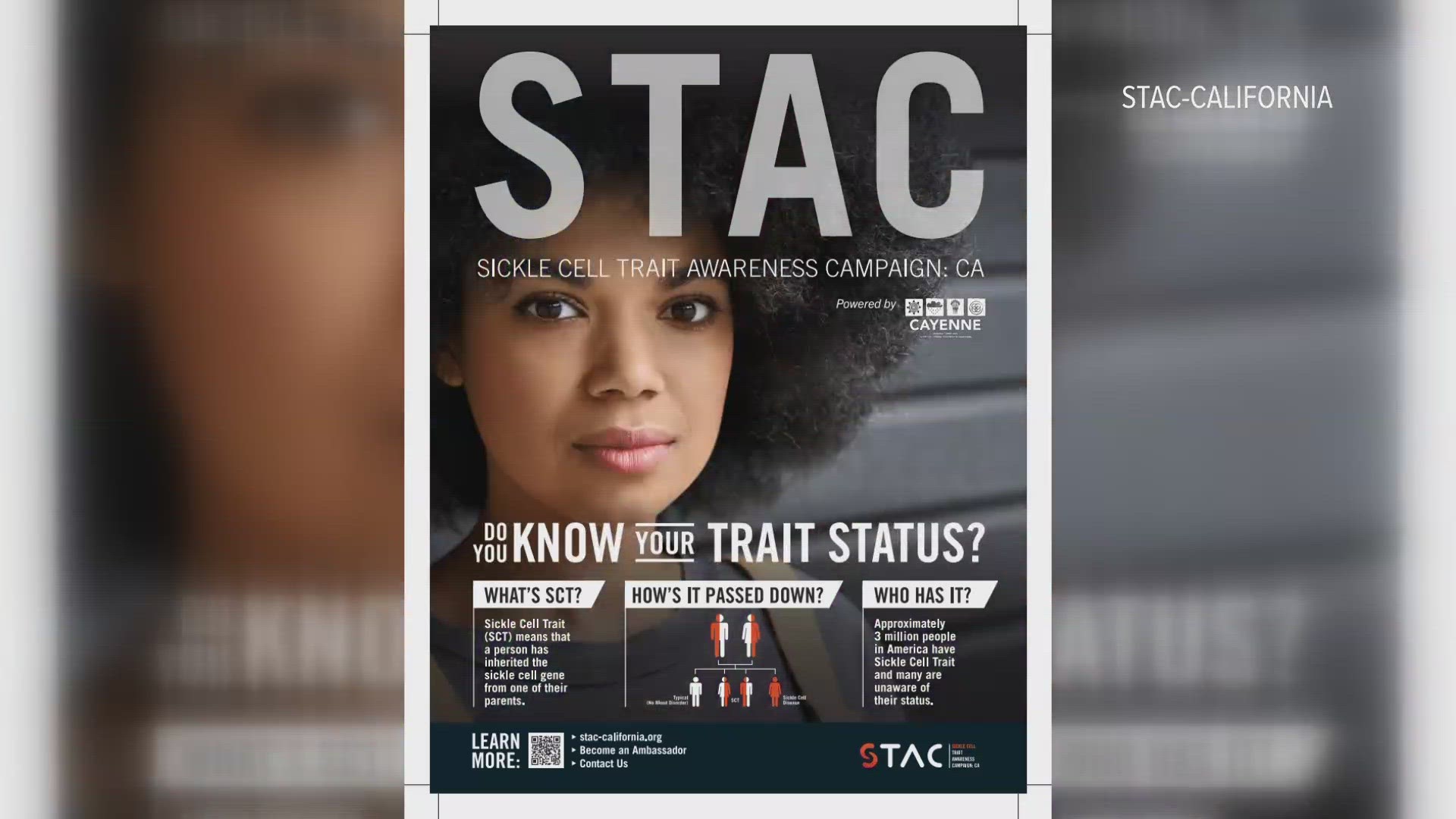CALIFORNIA, USA — STAC-California wants students to know what's in their genes. It's a new campaign that Cayenne Wellness Center has started urging middle school, high school and college-aged students to test for the sickle cell trait.
If two parents have the sickle cell trait, their child has a one in four chance of having Sickle Cell Disease. It's a lifelong, painful red blood cell disorder.
Sacramento resident Celeste Taylor has known that pain her entire life.
"I would moan, groan, and do a lot of things when I was a baby, but they would say 'it's gowning pains, its growing pains, she's fine', but my mom would say 'no, something is wrong with my daughter,'" Taylor said.
Doctors determined she had the trait at one year old but it would take three more years and a near-death experience to diagnose her with sickle cell disease.
"Basically my organs started shutting down, and it was so traumatic — I actually remember standing on my bed screaming for my dad," Taylor said.
Once she was diagnosed life featured many hospital visits, pain medication and blood transfusions. Now as an adult, she says she makes sure any men she is in a relationship with are tested for the trait.
"I have to know your status because if I don't, and you have the trait, I know our child is going to have sickle cell no matter what," Taylor said.
Cayenne Wellness Center Executive Director Dr. Carolyn Rowley said that's the goal of the STAC-California campaign.
"if they're dating in particular, we just want them to kind of have that conversation," Rowley said.
The campaign is reaching out to schools in the state with flyers and using social media to get students' attention. She said it's especially important among athletes. If they have the disease and over-exert themselves, it can occasionally cause serious complications.
The disease affects around 100,000 Americans. According to the CDC, It occurs in about 1 in every 365 Black and African American births, 1 in every 16,000 Hispanic-Americans, and around 1 in every 13 black or African American babies are born with the trait. There's a racial disparity surrounding its management. With pain as the main symptom, some patients aren't taken seriously.
"When they're going into the hospital, unfortunately, they face discrimination and bias, often times they are turned away," Rowley said. "Doctors will basically state 'I don't believe that you're in pain."
Taylor said she wants people to know having the disease is not her choice and it's not an 'African American' thing.
STAC hopes other states will pick up this campaign to make it a nationwide effort to raise awareness, save families and lower the high mortality rate surrounding sickle cell disease.
Watch more on ABC10

















